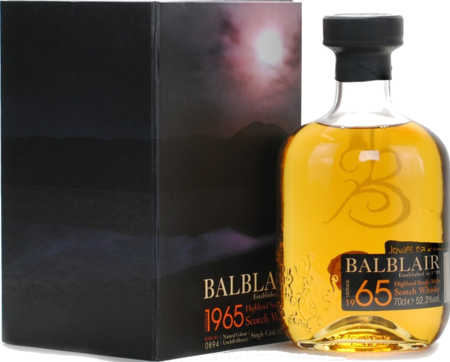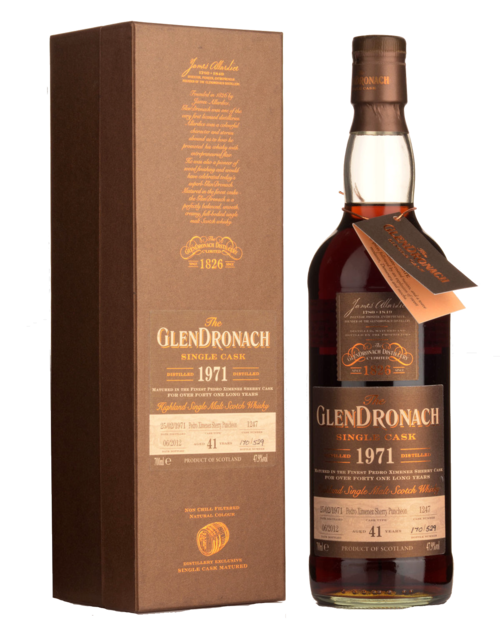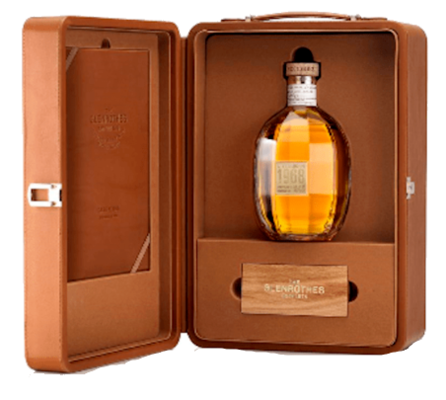Comprehensive Buying Guide to Australian Whiskey
You are a beginner or new to Australia. Wanna try best Australian whisky but no idea about where to and how to. Not much familiar with Australian Whiskies and wondering comprehensive guide.
Don’t Worry Mate! The Premium Selection is your Australian spirits’ guide. In this article we have explained each and everything about Australian Whiskeys. Read and get the ideas regarding taste, pairing food, climate impact and process of production.
We have also provided our best collection for quality taste.
Buy Without Any Delay!
Everything You Need To Know About Buying Australian Whiskey
Popularity: Australian Whiskey
Australian whiskey has gained global recognition due to its high-quality, innovative, and committed distilleries. The country’s unique climate, with its hot temperatures and varied seasons, accelerates the aging process, resulting in distinct profiles with rich flavors in a shorter maturation period. The rise of craft distilleries in Australia, which focus on quality over quantity, has also contributed to the popularity of Australian whiskey. These smaller, boutique producers produce artisanal and limited-edition releases that appeal to whiskey lovers. The global interest in diverse whiskey styles has also contributed to the rise of Australian whiskey, as enthusiasts are exploring expressions from different regions, and Australian varieties offer a unique and exciting option.
Diversity: Australian Whiskey
Australian distillers engage in experimentation with various grains, encompassing traditional barley and indigenous options like wattle seed and sorghum. This diverse selection of raw materials plays a pivotal role in shaping the broad spectrum of flavors found in Australian whiskies.
In the distillation process, Australian distilleries frequently employ an array of cask types for maturation, including ex-wine barrels such as those previously holding Shiraz and Cabernet Sauvignon. This approach imparts distinct and intricate flavors to the whiskey.
The whiskey-making process in Australia is influenced by different regional environmental factors. Ranging from the cool climates of Tasmania to the warmer areas of Victoria and New South Wales, each region contributes its own unique characteristics to the final product.
Renowned for their innovative techniques, Australian distillers showcase diversity in whiskey production. Some utilize varied fermentation methods, while others incorporate native botanicals and spices to craft distinctly Australian flavor profiles.
The Australian whiskey market thrives on collaboration between local distilleries and international brands, along with the introduction of limited-edition expressions. These exclusive releases generate anticipation and enthusiasm among both collectors and enthusiasts.
With a blend of quality craftsmanship, distinctive environmental influences, and a spirit of continuous experimentation, Australian whiskey emerges as a captivating and dynamic participant in the global whiskey market.
Types of Australian Whisky
| Whiskey Type | Production | Flavor Profile |
| Single Malt Whiskey | Single malt whiskey in Australia is typically made from 100% malted barley and distilled at a single distillery. | Australian single malts often exhibit a diverse range of flavors. Common notes include honey, vanilla, tropical fruits, and a touch of eucalyptus. Some may have smoky or peaty characteristics, influenced by the use of peat in the malting process. |
| Blended Whiskey | Blended whiskey in Australia is a mix of malt and grain whiskies sourced from different distilleries. | The flavor profile of Australian blended whiskey varies widely based on the components used. It can range from light and floral to rich and spicy, offering a balanced and approachable taste for a broad audience. |
| Rye Whiskey | Rye whiskey in Australia is made primarily from rye grain and adheres to the specific regulations governing rye whiskey production. | Australian rye whiskies often showcase bold and spicy characteristics. Expect flavors like cinnamon, nutmeg, and black pepper, along with fruity notes. The use of rye imparts a robust and distinctive profile. |
| Corn Whiskey | Corn whiskey in Australia is produced using a high percentage of corn in the mash bill. | Corn whiskey tends to be sweeter, with notes of caramel, toffee, and vanilla. The use of corn as a primary grain contributes a smooth and mellow character to the whiskey. |
| Peated Whiskey | Peated whiskey in Australia involves drying malted barley over a peat fire, imparting smoky flavors to the whisky. | Australian peated whiskies offer a spectrum of smokiness, from subtle to intense. Alongside the smoky notes, you may find medicinal, maritime, and earthy flavors, creating a complex and layered profile. |
| Cask Strength Whiskey | Cask strength whiskey in Australia is bottled directly from the barrel without dilution, resulting in a higher alcohol content. | The flavor profile of cask strength Australian whiskey is concentrated and intense. Expect a full-bodied experience with a robust combination of oak, spice, and the inherent characteristics of the malt or grains used. |
| Experimental and Innovative Whiskeys | Some Australian distillers experiment with unique grains, cask types, and production methods, leading to a category of innovative and experimental whiskies. | These whiskies can have diverse flavor profiles depending on the specific experimentation. It may include fruity, spicy, or herbal notes, showcasing the creativity of the distillers. |
| Aged and Vintage Whiskeys | Aged and vintage Australian whiskies are allowed to mature for an extended period, sometimes in unique cask types. | The extended maturation imparts rich, complex flavors. You may find notes of dried fruits, chocolate, leather, and well-integrated oak, with the aging process adding depth and character. |
Similarities with Scotch Whisky
Australian whisky shares several production methods with Scotch whisky. Both follow a single malt tradition, emphasizing the use of malted barley as the primary grain and a pot still for distillation. The similarities include the fermentation process, distillation methods, and maturation in oak casks. These shared methods contribute to a foundation of craftsmanship that defines the character of Australian single malt whisky.
Production Process: Australian Whisky
Malted Barley
The backbone of Australian whisky, malted barley, contributes to the rich, malty flavors during fermentation and distillation. It imparts a distinct cereal sweetness and a robust foundation for aging.
Water
The quality and source of water in Australia, just as in Scotland, influence the flavor and character of the whisky. Water interacts with the malted barley and affects fermentation, contributing to the unique terroir of each distillery.
Yeast
The choice of yeast strains in Australian whisky production, mirroring Scotch traditions, impacts the fermentation process. Yeast converts sugars into alcohol, producing various flavors and aromas crucial to the final product.
Cask Variety
Australian distilleries showcase versatility in cask selection, including former sherry, French oak, American oak, and barrels from the local wine industry. Each type imparts distinct characteristics, from the rich fruitiness of sherry casks to the vanilla and spice notes of American oak.
The unique climate in Australia, with its wide temperature variations, accelerates the interaction between whisky and wood, influencing the aging process and resulting in a faster maturation compared to some Scotch whiskies.
Pairing Food: Australian Whiskey
Pairing food with Australian whiskey can be a super fun experience, as the diverse flavors of the whiskey can complement or contrast with different food profiles.
| Australian Whiskey Type | Food Pairing | Tips and Notes |
| Single Malt Whiskey | Grilled lamb chops | The rich, smoky notes of the whiskey enhance the flavors of the lamb. Pair with a minty sauce for added complexity. |
| Dark chocolate | The maltiness and hints of oak in the whiskey complement the richness of dark chocolate. | |
| Blended Whiskey | Smoked salmon | The balanced and smooth profile of blended whiskey pairs well with the smokiness of the salmon. |
| Aged cheddar cheese | The sweetness and subtle spiciness of the whiskey can balance the richness of aged cheddar. | |
| Rye Whiskey | Spicy barbecue ribs | Rye whiskey’s bold and spicy character can stand up to the robust flavors of barbecue ribs. |
| Pickled vegetables | The spiciness of rye can be offset by the tanginess of pickled vegetables, creating a harmonious balance. | |
| Peated Whiskey | Blue cheese | The smoky and peaty notes of the whiskey pair well with the creamy and pungent flavors of blue cheese. |
| Oysters | The maritime notes in peated whiskey can enhance the brininess of fresh oysters for a unique pairing. | |
| Cask Strength Whiskey | Charcuterie platter | The high alcohol content and intense flavors of cask strength whiskey complement a variety of cured meats and cheeses. |
| Dark fruit tart | The robustness of cask strength whiskey can stand up to the richness of a dark fruit tart. |
Tips and Notes
Consider whether you want to complement the flavors of the whiskey with similar notes in the food or create a contrast for a more dynamic tasting experience.
Try to match the intensity of the whiskey with the robustness of the food. Lighter foods may be overwhelmed by bold whiskeys, and vice versa.
Personal taste plays a significant role. Don’t be afraid to experiment and find your own perfect pairings.
Water, bread, or plain crackers can serve as palate cleansers between sips and bites, allowing you to fully appreciate each flavor.
Regional Influence: Australian Whiskey
Australia’s diverse climate and geography contribute to the unique flavors of whiskey, and different regions across the country have distinctive characteristics that influence the production and maturation of whiskey. Below are few:
Tasmania:
Tasmania is renowned for its cool climate, which slows down the maturation process of whiskey. This results in a more gradual interaction between the spirit and the wood, allowing for a smoother and more refined flavor profile.
Tasmanian whiskies often feature fruity and citrusy notes, along with a balanced sweetness. The cool climate contributes to the development of delicate and nuanced flavors.
Victoria:
Victoria experiences a varied climate, with both cool and warmer regions. This diversity allows for a range of whiskey styles, from those with slow maturation in cooler climates to bolder expressions from warmer areas.
Victorian whiskies can showcase a spectrum of flavors. Those from cooler regions may have elegant and floral notes, while whiskies from warmer areas might display richer, spicier characteristics.
New South Wales:
New South Wales features warmer climates, influencing the maturation process and contributing to more accelerated aging of whiskey. The region is known for its innovative approach to whiskey production.
Whiskies from New South Wales often exhibit bold and robust flavors, with a higher likelihood of pronounced fruity and spicy notes. The warmer climate can intensify the interaction between the spirit and the wood, leading to a quicker maturation process.
South Australia:
South Australia encompasses diverse climates, including both cooler and warmer areas. This variability allows for the production of a wide range of whiskey styles.
South Australian whiskies may vary in flavor, with cooler regions producing more delicate and nuanced expressions, while warmer areas contribute to whiskies with bolder and spicier profiles.
Western Australia:
Western Australia has warm and arid regions, influencing the maturation process and imparting unique characteristics to the whiskey.
Whiskies from Western Australia may exhibit pronounced tropical fruit notes, along with a distinct richness. The warm climate accelerates maturation, contributing to a faster development of flavors.
Queensland:
Queensland has a subtropical climate with warm temperatures. This can directly effects the aging process of Australian whiskey.
Queensland whiskies are known for their tropical fruit flavors and vibrancy, attributed to their warmer climate and faster extraction of flavors from the cask.
Australian Capital Territory (ACT):
As the political and administrative center, the Australian Capital Territory is not known for large-scale whiskey production. However, some distilleries in this region may experiment with unique styles and production methods.
Whiskies from the ACT may vary widely based on the individual approaches of distillers, with potential for innovation and diverse flavor profiles.
Regional Specialties
- Tasmania is often celebrated for its elegant and refined single malts.
- Victoria’s diversity allows for a broad range of whiskey styles.
- New South Wales is known for its bold and innovative expressions.
- South Australia’s whiskies may vary from delicate to bold.
- Western Australia often produces whiskies with tropical fruit notes.
- Queensland whiskies can exhibit a vibrant and intense character.
Australian Whiskey Events, Festivals, and Tastings
Whisky Live Australia:
Whisky Live is a renowned international whisky tasting event, and the Australian edition showcases a wide array of local and international whiskies.
Tasmanian Whisky Week:
Held in Tasmania, this event celebrates the island’s rich whisky culture with distillery tours, tastings, and special events.
Melbourne Whisky Week:
Melbourne Whisky Week features a series of events, tastings, and masterclasses, offering an immersive experience for whisky freaks.
Sydney Whisky Fair:
Hosted by The Oak Barrel, the Sydney Whisky Fair showcases a curated selection of whiskies around the world, with a focus on Australian distilleries.
The Australian Distilled Spirits Awards (ADSA):
It is not a tasting event but recognizes excellence in Australian spirits, including whiskey. Attending the awards ceremony provides insights into top-performing distilleries and one can select multiple options from it.
Conclusion
Australian whiskey is a diverse and unique beverage that offers rich flavors influenced by unique production methods, regional climates, and innovative approaches. It is a popular choice for those who wanna try different regions, such as Tasmania for elegance, Victoria for diversity, and New South Wales for innovation.
Attending whiskey events, festivals, and tastings can enhance your knowledge and palate. Support craft distilleries that focus on quality and experimentation, as many small producers offer unique expressions and limited editions. Look for whiskies from distilleries that have received awards and recognition like The Premium Selection, as they can serve as indicators of quality and craftsmanship.
Try different types of Australian whiskey, such as single malt, blended, rye, peated, and cask strength, to explore your taste. Always pair different foods with Australian whiskies.
Whiskey preferences are subjective. Engage with the whiskey community online and at events to share experiences, seek recommendations, and stay updated on new releases. You can find a hub of whiskies and scotch on The Premium Selection.
Embrace the diversity of Australian whiskey by exploring various styles, regions, and expressions, as each bottle has its own story to tell.
Taste Quality Whisky with The Premium Selection
Choose from below mentioned Whisky Catalogue:
$145.00
$6,670.00
$5,800.00
$13,999.00
$10,897.00
$14,480.00
$14,900.00








